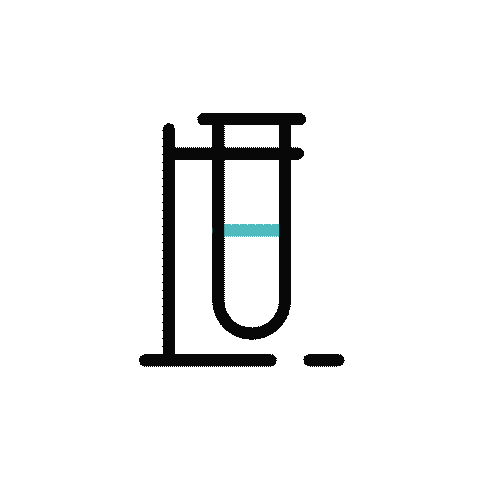TTG IGA Test (Tissue Transglutaminase Antibody)
Book the Tissue Transglutaminase IgA Test with Max@Home to diagnose celiac disease accurately.
₹1530

Report Time
2 Days No Fasting Required
No Fasting Required

FREE
Home Sample Collection

Age Group
All Age Group

Parameters Included
1

Recomended for
Both
Get a CALLBACK from our
Health Advisor
TTG IGA Test (Tissue Transglutaminase Antibody)
Book the Tissue Transglutaminase IgA Test with Max@Home to diagnose celiac disease accurately.

No Fasting Required

Report Time
2 Days
₹1530
Get a CALLBACK from our
Health Advisor

Understanding the Test

Test Measures

City Price Info
FAQs
Understanding the TTG IGA Test (Tissue Transglutaminase Antibody)
TTG IGA Test (Tissue Transglutaminase Antibody) Measures
TTG IGA Test (Tissue Transglutaminase Antibody) price for other cities
When is a TTG IgA Test Recommended?
The TTG IgA test is commonly recommended when coeliac disease is suspected based on a variety of symptoms, existing health conditions, or risk factors. The test is typically recommended in the following situations:
Symptoms of Coeliac Disease
Coeliac disease can manifest in a wide range of symptoms, many of which affect the digestive system, but it can also cause systemic issues. Common signs that may lead to the TTG IgA test include:
- Chronic Diarrhoea: Ongoing or recurring diarrhoea that doesn't respond to usual treatments can indicate problems related to gluten intolerance.
- Unexplained Weight Loss: Significant weight loss without any change in diet or exercise may be a sign of malabsorption of nutrients, often linked to coeliac disease.
- Persistent Fatigue: Feeling unusually tired or weak, even with adequate rest, can occur when the body isn't absorbing nutrients properly.
- Abdominal Pain or Bloating: Discomfort in the stomach or abdominal area, along with bloating after meals, is a common symptom of coeliac disease.
- Nausea and Vomiting: These digestive issues can also be indicative of an immune reaction to gluten, especially when they occur frequently.
Other Health Conditions
Coeliac disease can cause various complications if left undiagnosed, leading to conditions such as anaemia and osteoporosis. The TTG IgA test may be recommended in the presence of:
- Anaemia: Low iron levels that don't improve with standard treatment may suggest coeliac disease, as the condition can interfere with nutrient absorption.
- Osteoporosis: Weak or brittle bones can be a result of calcium and vitamin D deficiencies, which often stem from undiagnosed coeliac disease.
Family History
Coeliac disease tends to run in families, meaning that individuals with a first-degree relative (such as a parent or sibling) diagnosed with coeliac disease are at a higher risk of developing the condition. In such cases, testing may be recommended as part of routine health monitoring.
Delayed Growth in Children
In children, failure to thrive or delayed growth can be signs of coeliac disease. Since coeliac disease affects nutrient absorption, children may not gain weight or grow as expected. If these symptoms are present, a TTG IgA test is often recommended to rule out coeliac disease.
Gastrointestinal Issues
People who experience gastrointestinal discomfort that doesn’t improve with treatment, including bloating, stomach cramps, or unexplained changes in bowel habits, may need the TTG IgA test. It helps doctors determine whether gluten sensitivity or coeliac disease is a contributing factor.
What to Expect When Getting a TTG IgA Test at Home
Getting a TTG IgA test at home is a convenient and straightforward process. With home testing services, individuals can avoid the need to visit a clinic or laboratory, making it more comfortable and time-efficient. Here’s what you can expect when arranging and undergoing the TTG IgA test at home:
Booking the Test
The first step is scheduling your TTG IgA test with a trusted home sample collection service like MaxAtHome. The process is simple, typically done through an online platform or by phone. After booking, you’ll receive confirmation with the details of your test appointment, including the time and date. In some cases, you may also receive an email or message with additional instructions to prepare for the test.
Preparation for the Test
There is usually no special preparation required for the TTG IgA test. However, it is advisable to discuss any specific instructions with the service provider. For example, if you're already on a gluten-free diet or have other medical conditions, it’s essential to inform the healthcare professional conducting the test. Typically, the test requires a blood sample, so it’s important to stay well-hydrated, as this can make the blood collection process smoother.
Home Visit and Sample Collection
On the day of the test, a qualified phlebotomist or healthcare professional will arrive at your home to collect the sample. They will explain the process before proceeding. The sample collection is quick and straightforward: the technician will use a small needle to take a blood sample from your arm, which is then used for testing. The procedure typically takes just a few minutes, and while it may feel like a mild prick, it is generally not painful.
After the Test
Once the sample is collected, the technician will ensure the site is properly cleaned and bandaged. There is no recovery period needed, so you can continue with your normal activities. Depending on the service provider, you may receive the results online or via email once the laboratory has processed the sample. The turnaround time for results is typically between 24 to 48 hours, though this can vary depending on the provider and the lab.
Receiving Your Results
After your sample is processed, the results of your TTG IgA test will be shared with you in a timely manner (in about 2 days time). If the test shows elevated levels of TTG IgA antibodies, it could indicate coeliac disease. In such cases, your healthcare provider may advise additional testing or consultations with a specialist to confirm the diagnosis. If the result is negative, it can provide peace of mind, knowing that coeliac disease is unlikely to be the cause of your symptoms.
Why Choose MaxAtHome for TTG IgA Test?
Choosing MaxAtHome for your TTG IgA test offers several benefits, making the testing process more convenient, reliable, and comfortable. Here are some key advantages of opting for MaxAtHome:
Convenience of Home Testing
One of the main advantages of MaxAtHome is the ability to have the TTG IgA test done in the comfort of your own home. This eliminates the need to travel to a clinic or laboratory, saving you both time and effort. The appointment can be scheduled at a time that suits you, making it easier to fit into your busy schedule.
Trained Medical Staff
MaxAtHome ensures that trained healthcare professionals conduct the blood sample collection. The staff follow strict medical protocols to ensure the sample is collected safely and accurately, with minimal discomfort.
Quick and Reliable Results
With MaxAtHome, you can expect a fast turnaround time for your test results, typically in 48 hours. Once the test is processed, you will receive your results directly, either via email or through the secure online portal. This efficient process helps you quickly understand your health status and take the necessary next steps.
NABL-Accredited Laboratory Services
MaxAtHome carries out testing through laboratories that are accredited by the National Accreditation Board for Testing and Calibration Laboratories (NABL), following recognised standards for quality and competence.
Hassle-Free Booking and Customer Support
Booking your TTG IgA test with MaxAtHome is simple and straightforward. You can schedule your test online or through customer support, who are always available to answer your questions or address any concerns you may have before or after the test. MaxAtHome’s customer service team is dedicated to providing excellent support throughout.
Flexible Appointment Scheduling
MaxAtHome offers the convenience of flexible appointment scheduling for the TTG IgA test. This allows individuals to choose a date and time that best fits their personal schedule, reducing the need to adjust daily routines or take time off work. Such flexibility ensures that the testing process is more accommodating and less disruptive to one's lifestyle.
Booking TTG IgA Test with MaxAtHome
Getting tested for TTG IgA is now more convenient than ever. You can choose either of the following ways to book your test with us-
- Online Booking: On this page select the Book Now option, choose a convenient date and time, and proceed with payment or opt for Cash on Delivery (COD) as per your preference.
- Call Support: Prefer speaking to someone? Call our customer support team at 0124-478-1023 to schedule your test.
MaxAtHome offers free home sample collection services, ensuring that the testing process is convenient and accessible.

Read More
Frequently Asked Questions
Frequently Booked Together
CBC (Complete Blood Count) Test
Holo Vitamin B12 (L)
Serum Iron Studies
Compare Packages
You've selected items to compare.
Packages including TTG IGA Test (Tissue Transglutaminase Antibody)
View All

Health Blog
View AllTTG IGA Test (Tissue Transglutaminase Antibody) in Other Cities
- • TTG IGA Test (Tissue Transglutaminase Antibody) in Lucknow
- • TTG IGA Test (Tissue Transglutaminase Antibody) in Dehradun
- • TTG IGA Test (Tissue Transglutaminase Antibody) in Gurgaon
- • TTG IGA Test (Tissue Transglutaminase Antibody) in Mohali
- • TTG IGA Test (Tissue Transglutaminase Antibody) in Nagpur

























